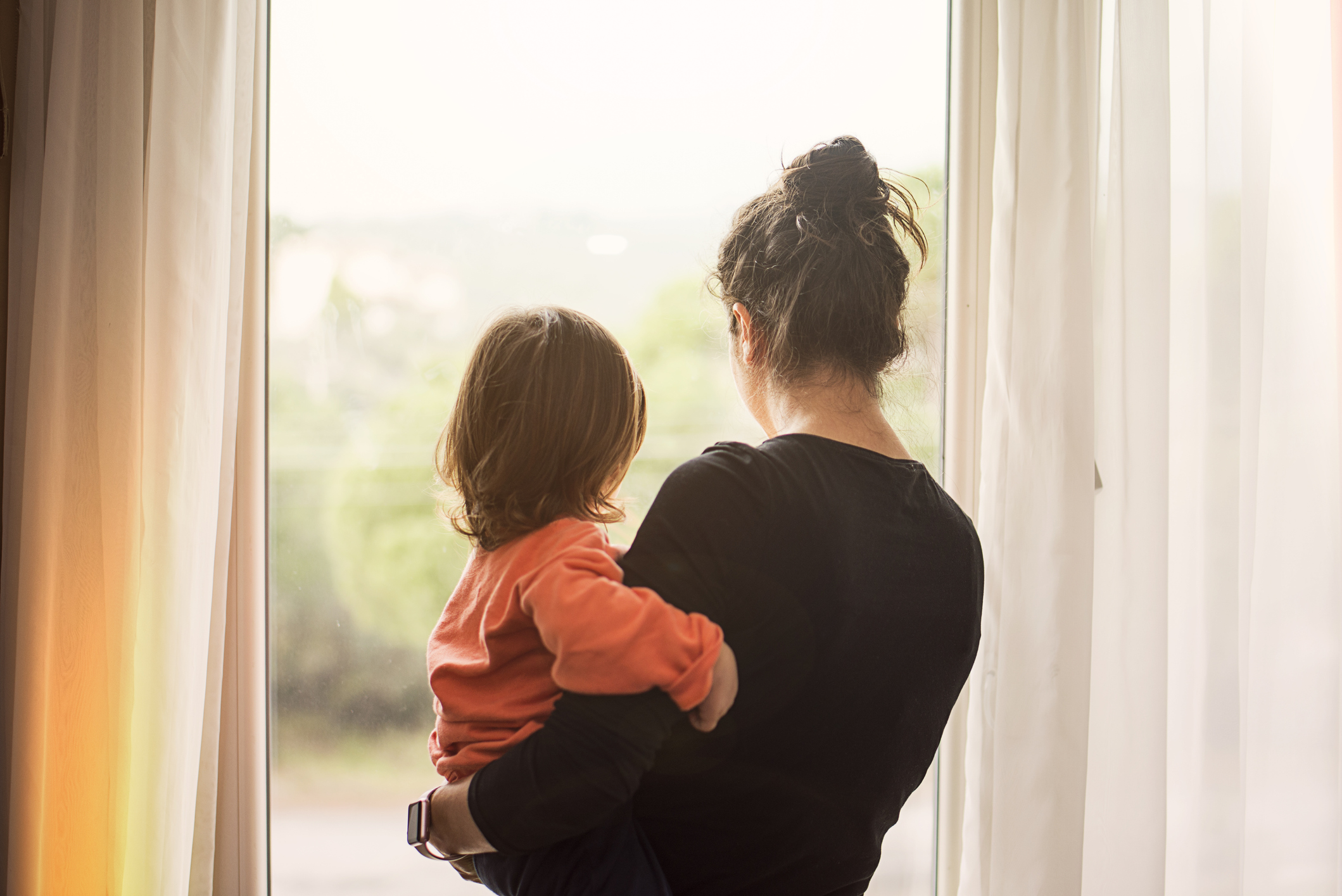
There has been a lot more talk lately about mental health struggles, especially anxiety. Anxiety is the most common mental health disorder, affecting roughly 40 million adults in the United States, as shown by the National Alliance of Mental Illness. In addition, approximately 7% of children between the ages of 3 and 17 experience symptoms of anxiety, the alliance notes.
Those who suffer from anxiety, like myself, know what a daily struggle it can be. Anxiety makes me feel nervous, anxious, and for some, can lead to panic attacks. Sometimes, it feels best to take it day by day to see how anxiety plays a part in our daily lives. Anxiety not only affects those who suffer from it but those around us. In an odd way, those closest to us also experience our anxiety.
I mean, think about it. If I’m on edge because I’m nervous, my husband and daughter can very clearly pick up on that energy.
How does your anxiety change those around you and suddenly become theirs?
“Anxiety can result in an increase in codependency and many individuals with anxiety might seek a partner, a child or a close friend, to depend on for support and reassurance,” says Michele Goldman, a psychologist and media advisor for the Hope for Depression Research Foundation.
I am 100% guilty of this. When I am feeling extra anxious, I immediately turn to my husband or my mother to vent it out. Goldman says that this can often put a strain on the relationship.
Depending on the way in which anxiety manifests, sometimes those with anxiety want to avoid people, places, going out, and certain situations.
Goldman says that isolation and withdrawal from others might include pulling away from those around you without much explanation. This can then have a negative impact on a relationship, especially if someone were to reach out only to be met with silence. This might cause the other person to pull away from the relationship.
It turns out that anxiety can be shared with those around you and can be contagious. As parents, that means we must be all the more mindful, as this can also affect our children, because they frequently copy our habits — both good and bad.
For example, right now my family has a lot going on.
My mother-in-law is in the hospital with COVID, and my husband had recently been in contact with her, so he had to quarantine away from us for a week. We’re remodeling our house and are moving into a new space for at least four months. I’ve been sick with very bad seasonal allergies. Things just feel quite overwhelming, and I’ve been stressed. My husband's been stressed. And guess who else has been stressed? Our 3-year-old daughter. She has been acting out more, hitting and screaming and just going a little crazy.
To be fair, it is not always easy to communicate with an anxious person, and therefore, others might not know how to help those who are feeling that way.
“They might want to help, but if we are not communicating our needs, they might unintentionally trigger anxiety,” Goldman says. “This can result in others feeling guilty, like they are 'walking on eggshells,' or resentful of the anxiety, etc.”
What advice can be offered for dealing with and understanding someone who may suffer from anxiety?
Goldman says a line must be drawn between being supportive for people close to you and colluding. She adds to ask someone how they want to be supported and what they need in a given moment. Sometimes people know what they need. If they can clearly verbalize a need that is reasonable and not colluding with the anxiety, support them if you can.
In a close intimate relationship, Goldman also says to learn someone else’s triggers.
“Yes, it is the person’s responsibility to communicate their triggers to you, but they might not know how to yet or might still be learning their own triggers," she explains. "Try to learn them together. Each trigger might have a different way to navigate it. Be creative and work together.”
My husband has learned that when I’m feeling overwhelmingly stressed in general, it’s best to give me some space. For me, sometimes space is what I need when I’m feeling extra anxious. Removing himself and our daughter just a little bit allows me to feel my feelings while also minimizing the "damage" to everyone else.
That isn't to say that having anxiety and being an anxious person make someone a bad person. In fact, if someone is struggling with anxiety, help if necessary.
For me, it can be very difficult to admit when I need some help. Goldman suggests it can be hard for people with anxiety to get connected to a therapist because making calls to new people might be scary and going somewhere new might increase anxiety, etc. Find out how you can help the person — reassure the person that this is within your comfort level and it is something you have the time/energy to take on.
I’ve always been very open about my struggles with anxiety. I want people to know that they are not alone. For too long there has been a stigma associated with mental health disorders. But we need to accept them and understand them.
I know that my anxiety can be troublesome, both for myself and those around me. I am well aware of this, and sometimes, I am sorry for the extra burden that puts on my family. But I’m only human. And at the end of the day, we’re all the same.
Sometimes it can be a matter of just going that extra mile for the people you love and understanding and accepting them for all their good and bad — or in this case, their anxiety.




